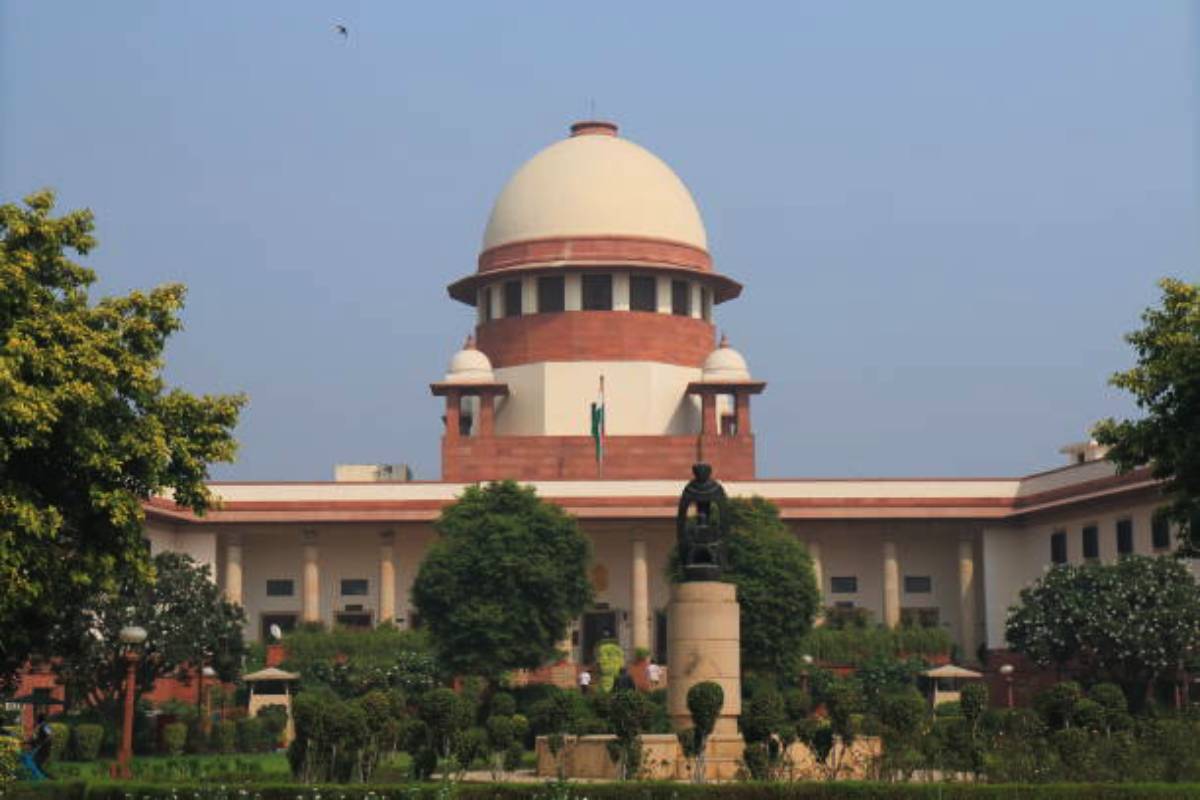India’s Got Latent: SC issues notice on YouTuber Ashish Chanchlani’s plea against FIRs
SC issues notice on YouTuber Ashish Chanchlani’s plea to quash or transfer FIR in India’s Got Latent case; tagged with Ranveer Allahabadia’s petition.
The top court has taken the initiative as Chief Minister Arvind Kejriwal and the Lieutenant Governor Vinai Saxena could not agree on a common name.

File Photo: Supreme Court of India
With Delhi Chief Minister Arvind Kejriwal and the Lieutenant Governor Vinai Saxena not agreeing on a name to be the chairperson of Delhi Electricity Regulatory Commission (DERC), the Supreme Court on Thursday took upon itself, as an ad-hoc measure, to appoint chairperson of DERC till the issue pending before it is finally decided.
On being informed that the meeting between the chief minister and the lieutenant governor did not yield any result, Chief Justice D Y Chandrachud heading a bench also comprising Justice Pamidighantam Sri Narasimha and Justice Manoj Misra, said in view of this deadlock, it will appoint a retired judge as chairperson of DERC while making it clear that the appointment will be on a pro-term basis as in interim arrangement.
Advertisement
The appointment will be made on August 4, 2023.
Advertisement
In the last hearing of the matter on July 17, the top court had asked both Lieutenant Governor Vinai Kumar Saxena and Chief Minister Arvind Kejriwal to “rise above bickering”, and sit together and decide on the name of Chairperson of Delhi Electricity Regulatory Commission.
In the last hearing also the court had said that they can appoint a retired judge as DERC Chairperson but would prefer if both lieutenant governor and the chief minister sit together and decide on a common name.
Taking upon itself the task of picking a retired judge to head the DERC as an ad-hoc arrangement, the bench said that it cannot allow the DERC to remain “headless” as it will affect public interest.
Appearing for the Delhi government, senior advocate Abhishek Manu Singhvi told the bench that the discussions between Chief Minister and Lieutenant Governor did not yield any results.
The CJI had said there are many ways – one way is that one functionary gives a list of three names and the other functionary accepts one name. “We don’t want to step into this. We want you both to sit down and do this.”
The top court’s advice to both the Lieutenant Governor and the Chief Minister had come in the course of the hearing of Delhi government’s petition on the appointment of the DERC Chairperson taking recourse to the provision of May 19 ordinance issued by the Centre taking away the control over services from Delhi government and vesting in the Lieutenants Governor overriding powers in the posting and transfer of senior bureaucrats.
The top court on July 4 had ordered deferring the administering of the oath to the Justice (retd.) Umesh Kumar, who was appointed by the lieutenant governor chairperson of Delhi Electricity Regulatory Commission. The oath was stalled till July 11.
The Delhi government moved the top court challenging the appointment of former Allahabad High Court judge, Justice Umesh Kumar as DERC chairperson on the ground that it was made unilaterally by the Lieutenant Governor without its concurrence.
The bench had noted that the petition raises a point of law regarding the validity of Section 45D of the GNCTD Act, as amended by the May 19 Ordinance issued by the Centre, which gives overriding powers to the Lieutenant Governor over the elected government in the matter of appointments.
Senior advocate Abhishek Manu Singhvi, appearing for the Delhi government, had sought stay of the notification appointing Justice Kumar.
Unilateral action by the lieutenant governor is against the Supreme Court’s five-judge Constitution bench judgment and also the spirit of Article 239AA of the Constitution, he had said.
Earlier, Kejriwal approved Justice (retd.) Rajeev Shrivastava for the DERC chairman, and the file was put up by former Deputy Chief Minister Manish Sisodia, who also held the power portfolio.
However, the file was returned by Lieutenant Governor Saxena with a recommendation to also consult with Delhi High Court Chief Justice for the appointment.
Later, the Delhi government approached the Supreme Court on April 12, blaming the Lieutenant Governor for delaying the appointment.
On May 19, the top court observed that the Lieutenant Governor is not supposed to act on his own discretion on such appointments, and directed the government to appoint the DERC chairperson within two weeks.
However, Justice Shrivastava later ‘expressed his inability to accept the appointment’ due to ‘family commitments and requirements’.
| ReplyReply to allForward |
Advertisement